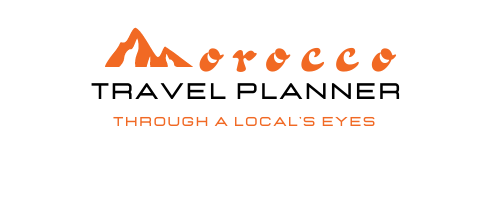Have you ever dreamed of exploring Morocco but felt overwhelmed and didn’t know how to plan your Morocco Trip itinerary? I get it—this beautiful country has so much to offer that it can be hard to know where to start. With its vibrant culture, breathtaking landscapes, and rich history, Morocco is a traveler’s dream, but navigating it requires insider knowledge.
As someone who has spent years curating personalized trips and exploring Morocco’s hidden gems, I’m here to save you the guesswork. This isn’t a generic guide pulled together by someone who’s never set foot in the country or an AI-made travel guide. It’s a tried-and-tested itinerary built on firsthand experience, local expertise, and a deep love for this remarkable land.
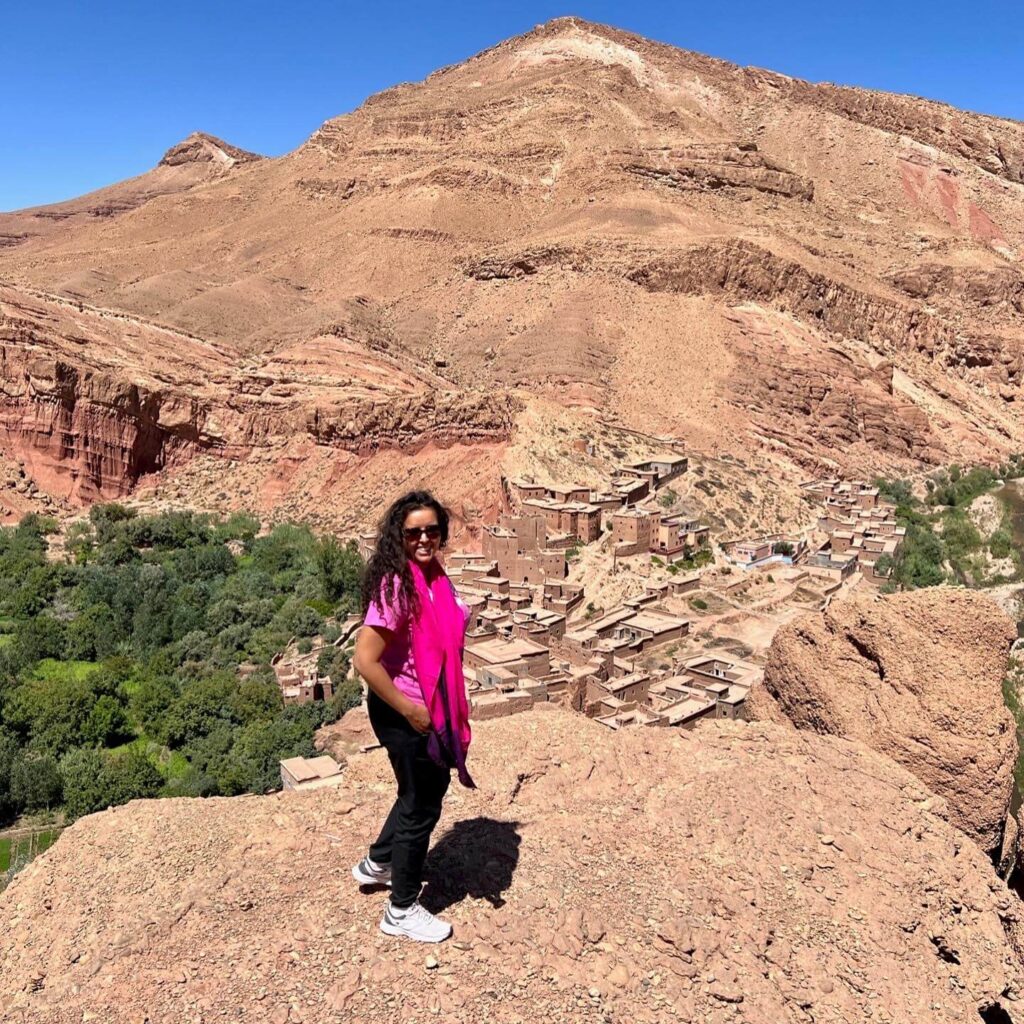
This guide will explain how to plan a trip to Morocco so that you can make the most of your trip, see all that should be seen, and return home with stories you’ll be retelling for decades.
How to Plan Your Morocco Trip Step-by-Step ?
Budget and Dates to Plan Your Morocco Trip
Before we even starting to plan your Morocco Trip , let’s make sure your budget and vacation days are suitable!
First, budget. You can have either a luxury holiday in Morocco or a very affordable one – there are versatile options for all travelers. Whether you want to spend less than $20 per day or indulge in a luxury getaway, Morocco is an excellent destination. For a budget-friendly trip, expect to spend roughly $900 per person. For a Midrange comfortable trip it could start from $ 1500. For the most luxurious experience, plan for a budget of around $5,000 per person, these are approximate costs for a vacation 8 – 10 days long.
One important thing to note, however, is that your Moroccan vacation experience will vary greatly depending on when you travel :
Winter (December to February):
- Ideal temperatures for exploring cities like Marrakech and Fes.
- Perfect weather for desert adventures in Merzouga, including camel treks and nights under the stars.
Spring (March to May):
- Warm and pleasant weather, perfect for exploring the Atlas Mountains or strolling through the souks of Marrakech and Fes.
- Blooming landscapes in areas like the Rose Valley and the Atlas Mountains.
Summer (June to August):
- Low tourist season in most cities, meaning quieter visits to popular spots.
- Excellent deals on accommodations and guided tours.
- Early morning or late afternoon activities are recommended to avoid the midday heat, especially in desert areas.
- In the Desert areas weather is very hot during the day (more than 40 C)
Autumn (September to November):
- Cooling temperatures after summer, ideal for exploring the Sahara Desert.
- Lush landscapes in the north, including the Rif Mountains near Chefchaouen.
The best times of year to plan your Morocco Trip are spring and autumn, with winter as a close contender. Most tourists may find the Moroccan summer heat challenging, so if you only have summer vacation time, consider focusing on coastal and Mountains areas or postponing your trip for a cooler season.
Extra tip: Make sure your vaccinations are up to date before visiting Morocco. While there’s no malaria, vaccinations like Hepatitis A are commonly recommended. Consult your doctor to learn more.
Independent Travel or Guided Tour?
Now you need to decide if you’re going to plan every moment of the tour yourself or use a Morocco Travel Planner or a vacation package. Let’s break it down.
Self-supported travel:
- Completely customize your travel.
- Spend as much or as little as you want.
- More time to be spontaneous on your vacation.
- Increased stress and time spent planning.
- Overwhelming Logistics and Navigating the Transportation System
- Miss out on hidden secrets.
- Navigation can be tricky.
- Language barriers and safety concerns to consider.
- Missing Cultural Insights
If you want to travel yourself in Morocco and feel confident navigating without a guide, then independent travel could be for you. It also allows you to save money. However, you’ll have a more stressful experience (as Morocco is one of the most challenging countries to navigate by yourself) and you risk missing out on the sites and experiences that only a private tour guide knows about.
Private Guided tours and itineraries:
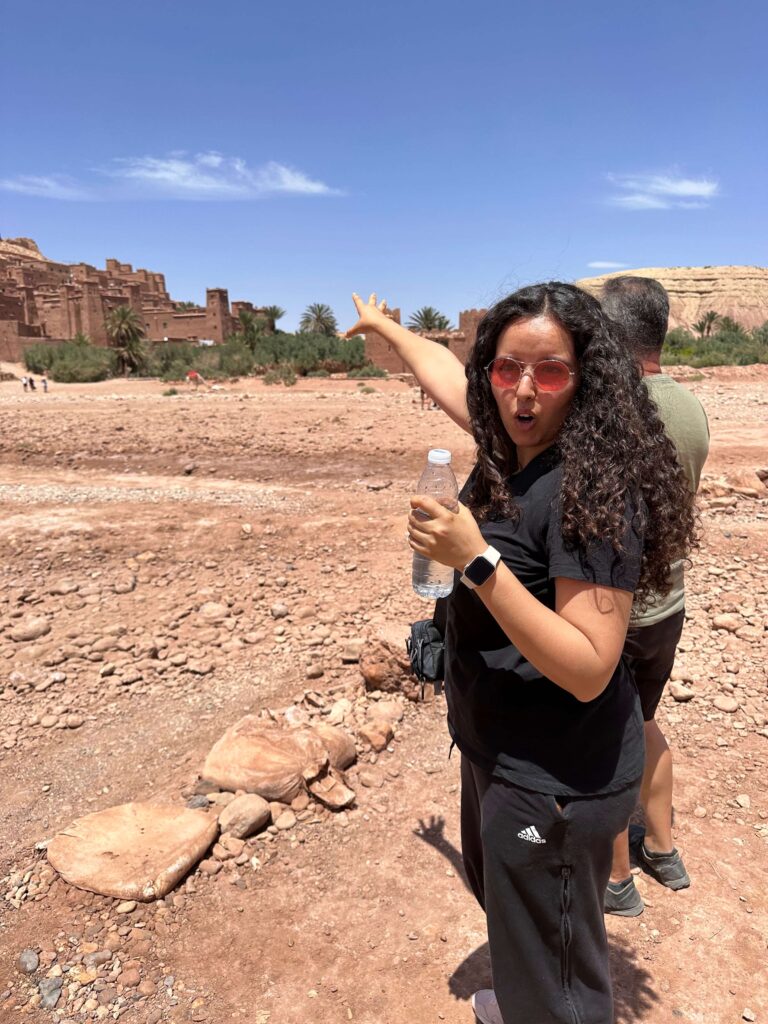
- Opportunities to interact with locals in authentic and meaningful ways.
- Hassle-free itinerary planning and logistics
- Reduced stress navigating transportation and accommodations.
- Enhanced safety, especially in remote or less touristy areas.
- Opportunity to visit hidden gems and off-the-beaten-path locations.
- Cultural insights and context provided by knowledgeable guides.
- Time-efficient exploration of multiple destinations.
- In-depth cultural insights into traditions, history, and local customs.
- Tailored recommendations for food, shopping, and activities based on local knowledge.
- Opportunities to witness special events or festivals with guided explanations
Private Morocco Guided tours may cost more upfront, but they provide unmatched security and a stress-free experience. From access to exclusive sites that most tourists never see, to quick transportation around Morocco and a guide who can speak to the locals – it’s all included in one price. For solo travelers, couples, and families that want an adventure without worries, we highly recommend exploring Morocco tours here.
Whether you choose a tour or independent travel, book and start to plan your Morocco Trip at least four months in advance to get the best deals on flights. To ensure you don’t miss out (especially during peak times) then book even earlier.
Planning your itinerary in Morocco
Itinerary For A Week In Morocco: Desert and Mountains :
| Day | Highlights | Overnight |
|---|---|---|
| Day 1 | Arrive in Marrakech and Explore | Marrakech |
| Day 2 | Explore Aitbenhaddou and continue to Dades | Boulmane Dades |
| Day 3 | Visit Toudgha gorges, Camel Ride and camping | Sahara Desert |
| Day 4 | Visit Rissani Village and Draa Valley | Draa Valley |
| Day 5 | Back to Marrakech Via Atlas Mountains | Marrakech |
| Day 6 | Transfer to Essaouira and Explore | Essaouira |
| Day 7 | Return to Marrakesh & Departure |
10 Days in Morocco a highlight tour
| Day | Highlights | Overnight |
|---|---|---|
| Day 1 | Arrive in Casablanca, City Tour, Visit Hassan ii Mosque. | Casablanca |
| Day 2 | Transfer to Rabat and explore, Kasbah Oudaya and Rabat’s old Medina, Transfer to Chefchaouen | Chefchaouen |
| Day 3 | Transfer to the Roman Ruins of Volubilis and explore, Transfer to Fez. | Fez |
| Day 4 | Tour the Fes Medina, Hammam Experience | Fez |
| Day 5 | half way between Fes and the Desert, stay in a berber village | Midelt |
| Day 6 | Camel Ride, Sahara Desert Exploration. | Merzouga Desert |
| Day 7 | Explore Khorbat Village and Todra Gorge | Dades Valley |
| Day 8 | Explore Aitbenhaddou and travel to Marrakech | Marrakech |
| Day 9 | Full Day Explore Marrakech | Marrakech |
| Day 10 | Departure Day |
16 Days Grand Tour: The Best Of Morocco
| Day | Highlights | Overnight |
|---|---|---|
| Day 1 | Arrive in Casablanca, City Tour, Visit Hassan ii Mosque. | Casablanca |
| Day 2 | Transfer to Rabat and explore, Kasbah Oudaya and Rabat’s old Medina, Transfer to Chefchaouen | Chefchaouen |
| Day 3 | Explore Chefchaouen, a Morning photo walk, Sunset hike for the panoramic view. | Chefchaouen |
| Day 4 | Transfer to the Roman Ruins of Volubilis and explore, Transfer to Fez. | Fez |
| Day 5 | Tour the Fes Medina, Hammam Experience | Fez |
| Day 6 | half way between Fes and the Desert, stay in a berber village | Midelt |
| Day 7 | Camel Ride, Sahara Desert Exploration. | Merzouga Desert |
| Day 8 | Explore Khorbat Village and Todra Gorge | Rose Valley |
| Day 9 | Full Day Exploration Rose valley | Rose Valley |
| Day 10 | Kasbah Skoura — Ourzazate | Ouarzazate |
| Day 11 | Explore Aitbenhaddou — Transfer to Marrakech | Marrakesh |
| Day 12 | Full Day Explore Marrakech | Marrakesh |
| Day 13 | Transfer to Essaouira and Explore | Essaouira |
| Day 14 | Relaxing Day by the Coast + Surfing | Essaouira |
| Day 15 | Back to Marrakech, Shoping souvenirs, Nice Restaurant | Marrakesh |
| Day 16 | Departure Day, Airport Trasnfer |
Transportation options in Morocco
Train
The state-run (ONCF) is safe and comfortable, the train has two main routes run between Marrakech and Tangier, passing through Casablanca and Rabat, and from the nation’s capital of Rabat to the easterly city of Oujda, via Fez. but not in the south as Marrakech is the last station south. Tickets can be reserved online on their website or directly in the train station.
A high-speed (TGV) line to link Tangier, Rabat and Casablanca opened in 2018, reducing the travel time between Tangier and Casablanca from five hours to just over two hours, with trains travelling at 320km/h.
Bus
CTM and Supratours are the most reliable, they are comfortable and safe with air conditioning you can book your tickets on their websites and check the time schedule for each, some lux and premium ones have Wifi and more space inside. It operates in all major cities in Morocco.
They are also regular busses used by many locals in the local station, they have the cheapest fares and don’t have a regular timetable they just wait until it’s full and leave the station, Less comfortable and not very clean, usually no air conditioning.
These local busses are never accurate because they stop many times on the road to pick up other passengers, by far CTM and Supratours are faster.
Grand Taxis
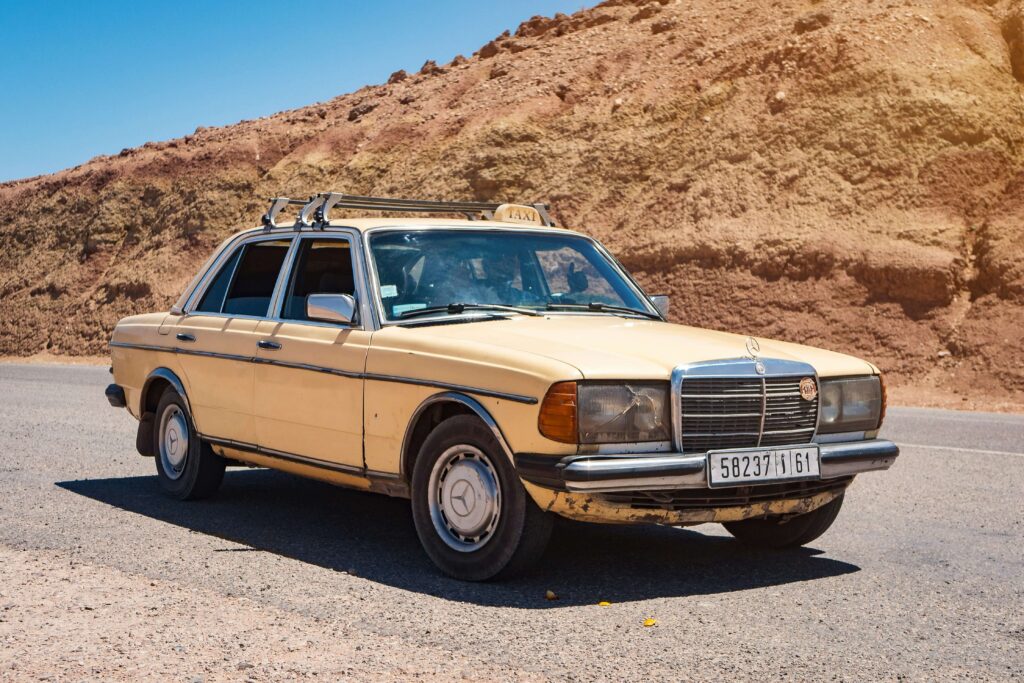
Grands taxis link towns to their neighbors and are a classic option for traveling between cities or from city to village. These taxis can carry six passengers. You can find them near local stations, and their most popular colors are yellow, green, and blue. They have a round stamp with “Grand Taxi” written on it. Prices vary based on distance. For short trips from the city to a nearby village, fares start at 5 DH and range from 20 to 30 DH. At night, prices double. For intercity travel, it can cost 70 DH for a three-hour ride.
Previously, Grands taxis used to be old Mercedes cars that typically accommodated four passengers. Cramming six people—two in the front and four in the back—was uncomfortable, especially for long journeys. Recently, most drivers have switched to Dacia Lodgy or similar vehicles. These new taxis have six separate seats, providing more comfort without needing to squeeze in with others.
Hiring an entire taxi can be a good option if you’re traveling in a small group. Always negotiate the price upfront. The fair price is typically six times the single-person fare. In this case, the taxi will not stop along the way, making your journey faster.
Hiring a private driver to plan your Morocco Trip
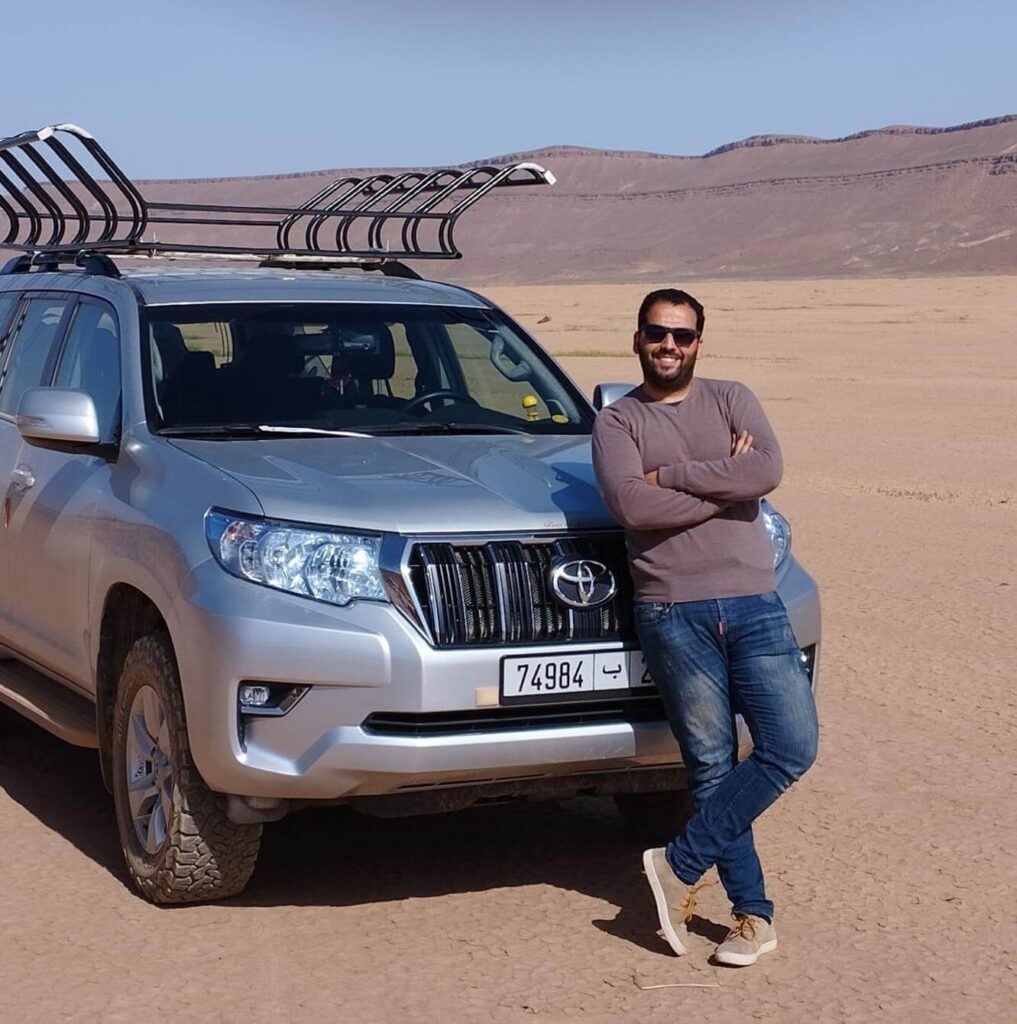
this is the most expensive choice to get around inside the city but it is efficient in case you have a small amount of time and want o visit many places, also if you are a group of 4 and up it is a wiser decision to hire a private a driver and split the cost and save money and time. contact us to organize a private driver, local guide, and more [email protected], +212665164076
Renting a car
Renting a car can be a useful option if you are an experienced driver. Driving in Morocco is challenging and often chaotic. The roads are crowded with scooters and old motorcycles weaving through traffic. You’ll also see young and old women carrying heavy loads. Despite these challenges, you do not need an international driver’s license to drive or rent a car in Morocco. Simply bring your passport, credit card, and a valid driver’s license from your home country. Most car rental companies require you to be at least 21 years old to rent a car.
In Morocco, traffic drives on the right side of the road. The speed limit is 40-60 km/h in cities, up to 80 km/h on roads, and up to 120 km/h on highways.
Visa requirements and travel documents
To plan your Morocco Trip Morocco, you will either need a visa, a travel authorization or none of the previous. The requirements of entry to Morocco change from nationality to another. Nationalities all over the world need a visa or a travel authorization to visit Morocco except the following 65 countries that are allowed to enter Morocco without any visa or travel authorization needed:
| VISA-Exempt countries to visit Morocco | ||||
| Algeria | Andorra | Argentina | Australia | Austria |
| Bahrain | Belgium | Brazil | Bulgaria | Canada |
| Chile | China | Croatia | Czech Republic | Denmark |
| Estonia | Finland | France | Gabon | Germany |
| Greece | Hong Kong | Hungary | Iceland | Indonesia |
| Ireland | Italy | Ivory Coast | Japan | Kuwait |
| Latvia | Liechtenstein | Lithuania | Luxembourg | Macau |
| Malta | Mexico | Monaco | Netherlands | New Zealand |
| Niger | Norway | Oman | Peru | Philippines |
| Poland | Portugal | Qatar | Republic of Cyprus | Romania |
| Russian Federation | San Marino | Saudi Arabia | Senegal | Singapore |
| Slovakia | Slovenia | Spain | Sweden | Switzerland |
| Tunisia | Turkey | United Arab Emirates | United Kingdom | United States |
*For Hong Kong and Singapore, the citizens are only allowed to stay up to 30 days.
Helpful Travel Planning Tips and Resources for Morocco
Cultural customs and etiquette in Morocco :
- Greetings often start with a handshake;
- close acquaintances may exchange cheek kisses.
- Always use your right hand for eating, giving, or receiving items.
- Dress modestly, covering shoulders and knees, especially when visiting religious sites.
- Remove your shoes when entering someone’s home as a sign of respect.
- Bargaining is customary in markets, so enjoy the experience!
Safety tips for traveling in Morocco :
Morocco is a safe country I live alone in Marrakech for about 10 years now since I moved from my village to university I go to nontouristic places and they are still quite safe.
Like any place in the world, you just need to use common sense, police are everywhere in all the tourist places in the city (Jemaa el Fna Square/Old Medina/New town…..) because Tourism is a major industry in Morocco and the last thing authorities want is bad publicity for the country.
There are some rules and tips to follow when traveling around Morocco :
- When Walking in the medinas (the old town of Marrakech or Fes ) at night try to avoid empty streets that you are not familiar with as it is really easy to get lost and you can’t find your way back, In the new city it is fine to walk around even late at night as there are many night clubs and restaurants there.
- Consider what you wear, Morocco is still a conservative country, and many women walk around with their hair covered and Dress modestly. so it is better to avoid skimpy tops, shorts, and revealing clothing.
- Don’t be afraid to say no you will have people randomly approach you on the streets and ask you where are you from, telling you that they can show you a quicker way in the streets of Medina and in the souks they will try to get you to enter their shops, in this case just say “No Thank you”.
